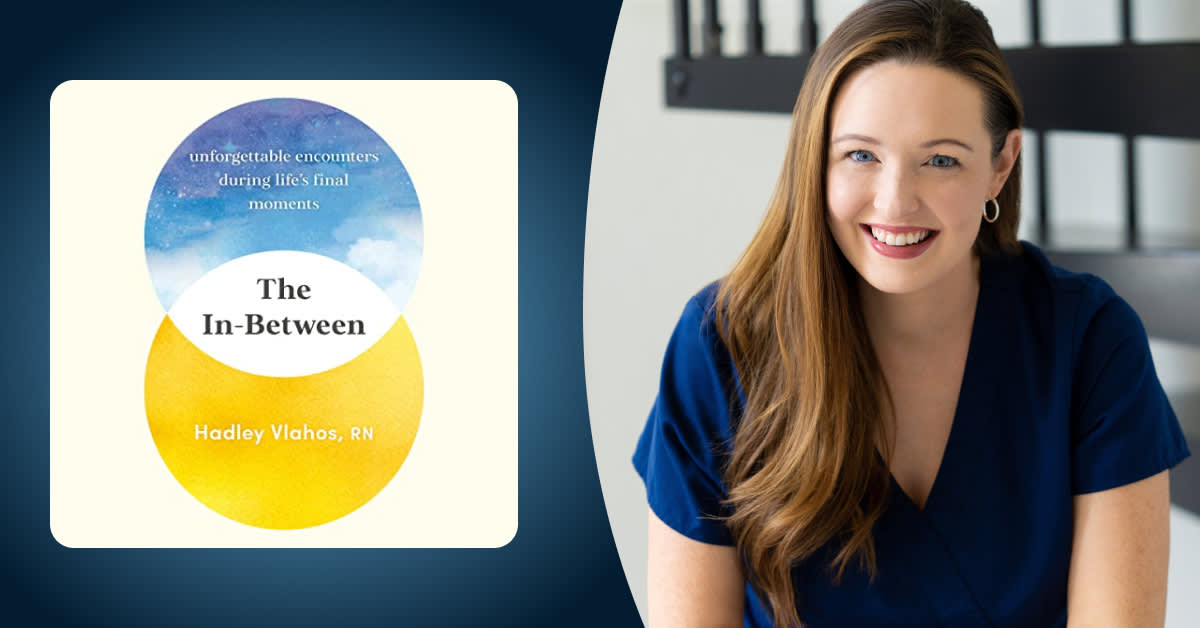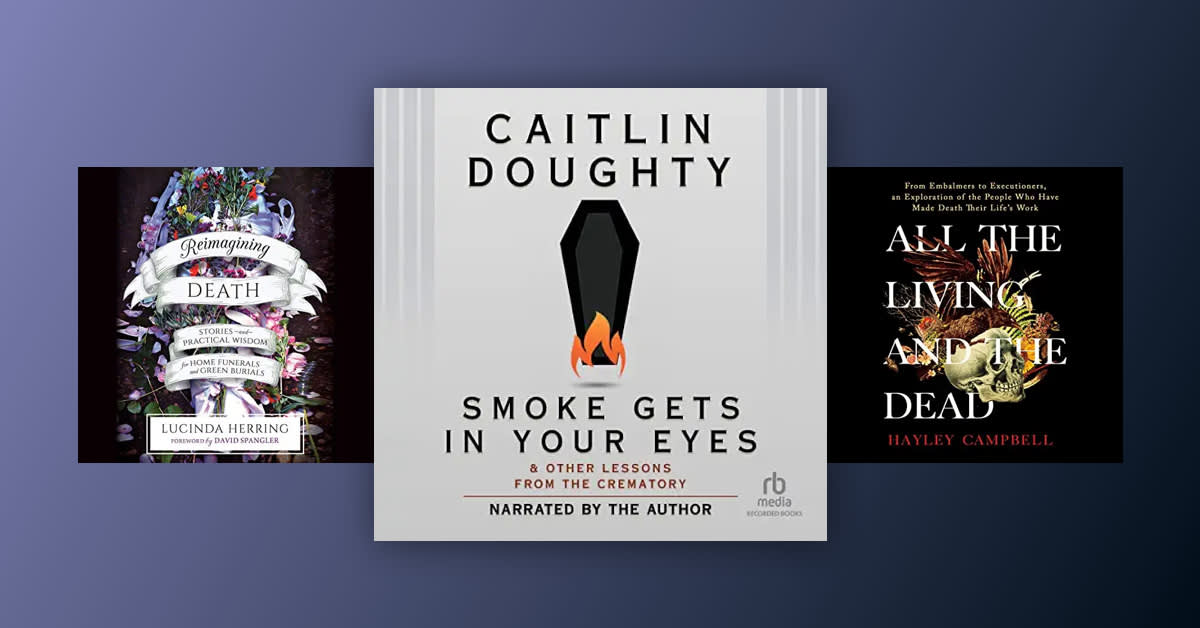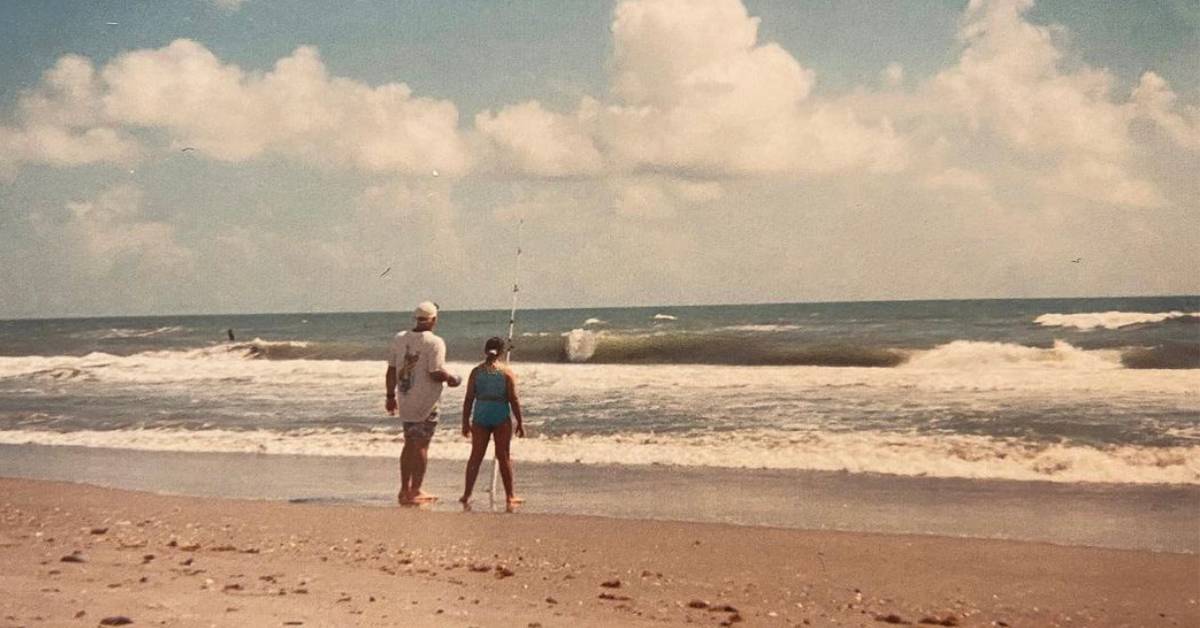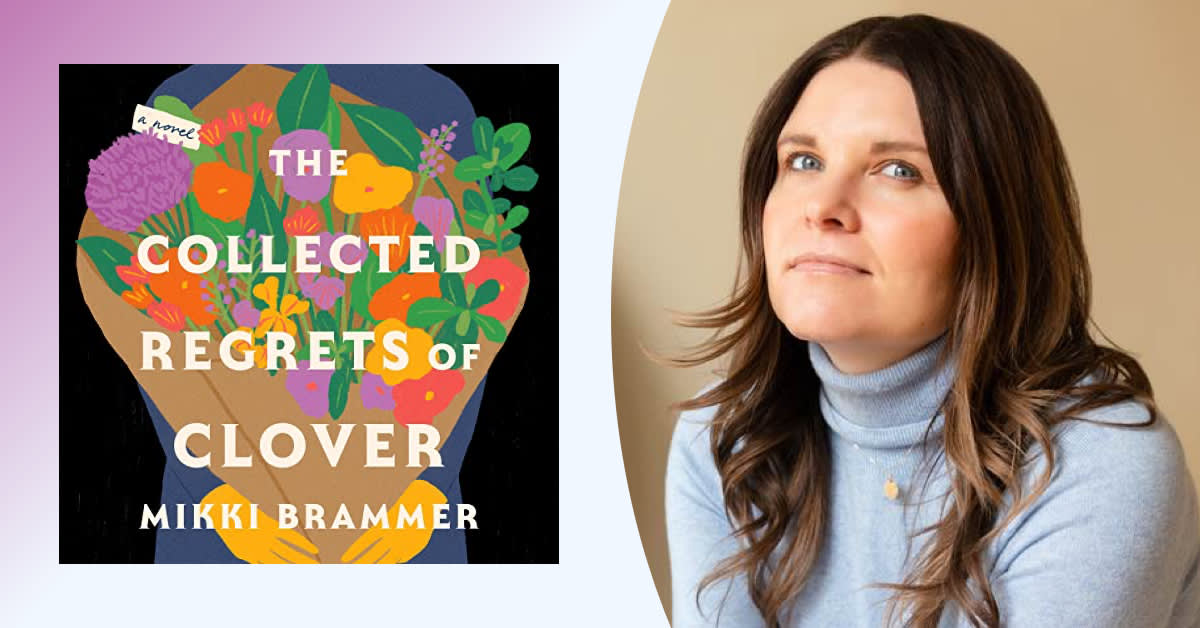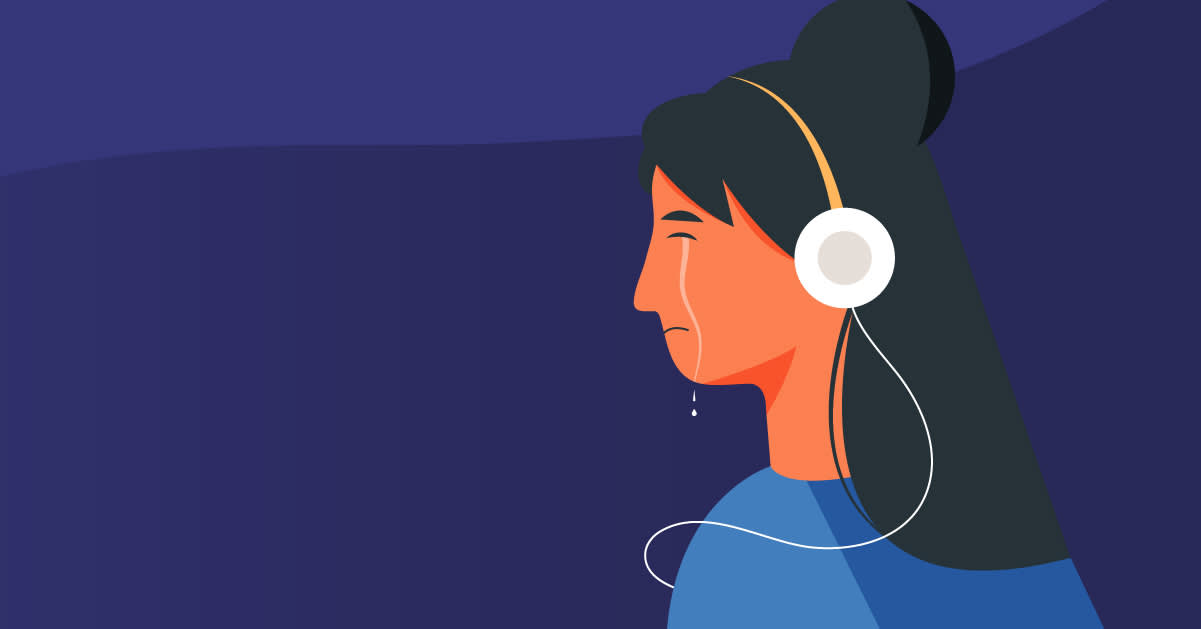Though many find the topic difficult to talk about, death is one of life’s non-negotiables. And like many unthinkable things, the better prepared we are for it, the less frightening a process it has to be. Across social media, professionals in end-of-life care are opening up dialogues with curious followers, discussing everything from advanced care directives to the possibility of an afterlife. Among the most popular creators is Hadley Vlahos, RN, who shares stories and good-natured advice from her professional life as a hospice nurse alongside her day-to-day as a mother of two. Her gentle approach and genuine, kindhearted sense of self has won the hearts of followers interested in what it takes to live a good life, have a good death, and leave plenty of goodness behind.
We spoke with Vlahos, who shared a bit about her new memoir The In-Between, as well as what inspires her tender, empathetic approach, the patients who have left an indelible mark, and what we can all glean from the odd comfort offered by Death Cafes.
Audible: Many listeners may know you from your popular TikTok account @nursehadley, where you document your experiences as a hospice nurse. Why do you think it is that so many folks are drawn to stories about death and dying, a topic once considered too taboo to address directly?
Hadley Vlahos: I’ve asked myself this question many times over the past three years because the interest surprised me as well. I think people are naturally drawn to my stories because it’s taboo. I think our society is changing and no longer shying away from hard conversations—we want to understand the people around us and what they are going through. For people who are in a hospice situation, either losing their loved one or even in hospice themselves, these stories create an emotional connection. People can relate to others to find comfort and a sense of shared humanity. For some, hearing about death can make them reflect on their own life. Having a reminder of your own mortality is a powerful reason to appreciate the present moment. Mostly, I think it’s about empathy and compassion. These stories bring out strong emotions that help people understand what others are going through. They inspire us to be more supportive and caring to those facing end-of-life experiences.
In your memoir The In-Between, you also explore your own personal background, from a strict upbringing to single motherhood. How did these experiences influence the empathetic, understanding approach you bring to your professional life?
The firsthand experience of feeling criticized and vulnerable as a young single mom made me acutely aware of how important compassion and support is for individuals facing difficult circumstances. One of my favorite quotes is by Maya Angelou: “I’ve learned that people will forget what you said, people will forget what you did, but people will never forget how you made them feel.” Although I have forgotten some of those people who were less than kind to me during those difficult years, I have never forgotten how I felt in those situations. Due to these experiences, I try to always leave a patient’s home better than when I entered. It could be something as small as a warm presence or as big as providing pain relief that a patient hasn’t experienced in years. I firmly believe that, although I can’t change my experiences from when I was younger, I can make sure that no patient under my care ever feels how I did.
Throughout, you also document several particularly memorable encounters with your hospice patients and their families. Can you share one of these moments here, and expand a bit on the impact it had on you?
I grew extremely close to a patient, whom I call Carl in my book, and his wife. Although he was resistant to hospice care at first, I was able to break through his hard exterior by having him teach me about sports. Slowly, we learned more about each other, and as he learned about me being a single mom and the busy schedule I had, he made it his personal mission to keep me updated on current events. With little else to do all day, his heart disease making it impossible to do anything other than lay in bed, he watched the news and began writing important events down. Every time I showed up for a visit, he had a piece of paper ready for me to review.
After many months of caring for him, I showed up to his home one day to find his bed empty. Confused, and to my and his wife’s surprise, he was walking around playing hide and seek. He hadn’t been out of bed in months. He was experiencing something we call “the surge of energy,” and simultaneously seeing a deceased loved one—two unexplainable hospice phenomenons that we see frequently.
Soon after, he became bed bound again. During our last conversation, he thanked me for giving him “something to look forward to other than death.” His passing was one of the most difficult deaths of a patient I have ever endured. Carl and his wife, and their unwavering trust in me and my abilities as a new nurse, gave me the confidence boost I needed to excel as a hospice nurse. Every single day I think of them and am inspired to show up as that young, eager nurse determined to make meaningful connections with my patients.
There’s a growing movement, both on social media and in the wider community of death professionals, emphasizing the importance of death acceptance and advance planning. How can listeners get started on facing their own mortality, and what actionable steps can they take to prepare for life’s end?
Anyone being open and listening to the stories in my book, and similar books, is already taking steps to facing their own mortality. Studies show that discussing death helps to alleviate fears around it. Another way to have those conversations is at Death Cafes, which are events held all around the United States where people get together, eat food, and talk about death.
Something that anyone can do today is discuss their end-of-life wishes with their loved ones. A few questions that your spouse, parent, or child should be able to answer are:
Do you want to be buried or cremated when you die?
Do you want your organs donated?
Do you want life support if you’re in a coma and not expected to wake up?
Do you want life support if you have extensive brain damage?
When you die, do you want to be in a hospital, in a facility, or at home?
Additionally, there is a document that can be completed in the comfort of your own home, called Five Wishes, that walks you through many different choices at the end of life, and you can write down your wishes. This is a legal document in almost all states.
Are there any death-positive podcasts or audiobooks you’d recommend to someone navigating end-of-life care for themselves or a loved one?
Yes! My favorite podcasts are DEAD Talks and Terrible, Thanks for Asking. My favorite books are Final Gifts: Understanding the Special Needs, Awareness, and Communications of the Dying and By Your Side: A Guide for Caring for the Dying at Home.
